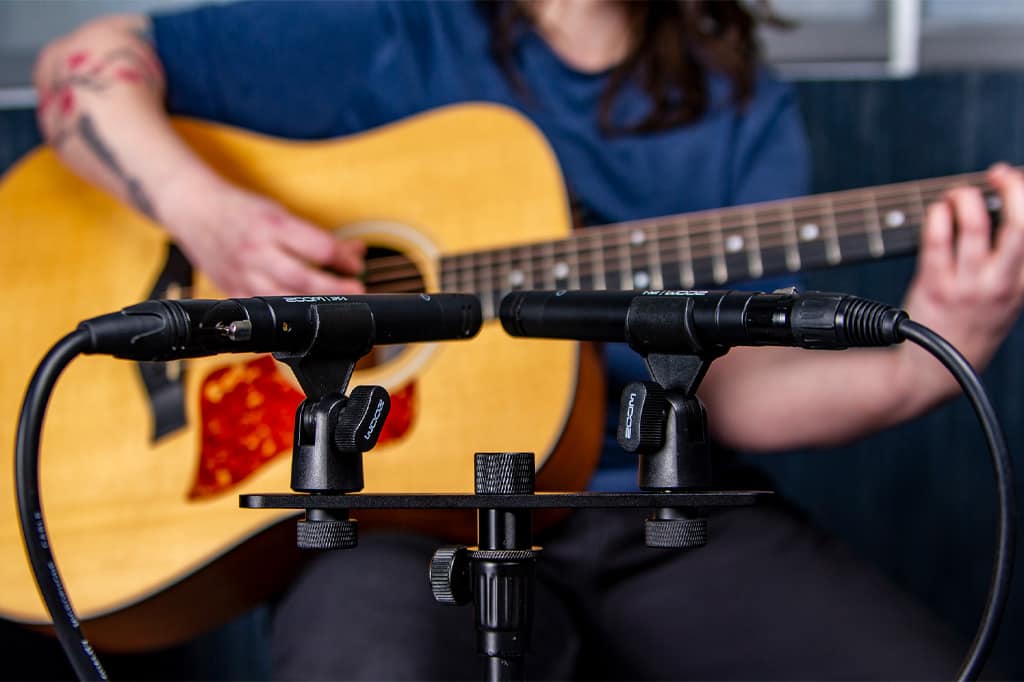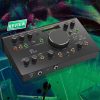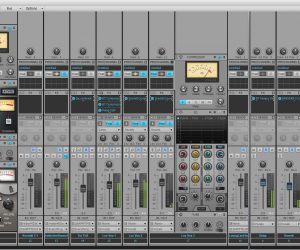
Review: Zoom ZPC-1
A matched pair of pencil-mics at a minimal price.
While I write this, someone at Skywalker Sound made a post on social media that can essentially be boiled down to ‘People spend too much time obsessing over the gear and not enough time just pointing mics at things’. While I do own high-end gear I certainly did not start out with it. In fact, I still regularly use lower-priced equipment as part of my regular workflow. I think that if a product can offer useful functionality at a price that allows beginners and hobbyists to be creative, then I will only ever see this as a positive thing.
MIC CHECK
We could ask why Zoom might bring small form microphones into an already flooded market. Well, many of the other choices are prohibitively expensive — and the way I see it, a fantastic sound captured on any device is more valuable than no sound captured at all.
Price-wise, these Zoom microphones fall roughly into the range of classics such as the SM57 and SM58. These Shure mics have a reputation for being reliable and indestructible, but are also popular for being cheap enough that you can buy one for every member of the band. The ZPC-1 condenser mic is cheap enough that you could buy several for the drum kit, a pair for the piano, and maybe a few more for the acoustic guitars and percussion toys. The price point is likely to be the initial drawcard for many users.
PENCIL ME IN
The boxed presentation of the product feels substantial and sturdy, and the microphones seem well designed and constructed. The box includes two ZPC-1 pencil microphones, as well as clips, windshields, and bags for both mics. The windshields are well considered, with a mounting ring design that clips securely onto the mic. I also appreciate the utilitarian aesthetic of the simple cardboard box. Shipping products in fancy packaging may provide some initial sales buzz but given this is often quickly discarded, Zoom’s option seems like quite a practical alternative.
Some specifications of note are the microphones being able to handle a maximum SPL of 134dB, and a frequency range of 40Hz to 20kHz — these being specifically relevant to me as they are useful for capturing large, loud machinery. These specs also mean that the ZPC-1 is well suited to drums and percussive instruments. Thanks to advancing technologies decreasing the differential between the highest and lowest end of the technology range, the ZPC-1 has specifications that are very close to microphones many times the price.
NEED TO KNOW
Zoom ZPC-1
A matched pair of pencil-mics at a minimal price.

ALL PAIRED UP
An important aspect of how we evaluate equipment is to ask how the product is relevant to us within our workflow. Let’s find out if these mics are your bag of chips. The ZPC-1 is very susceptible to wind noise, even when using the supplied windshield. This clip-on attachment features a foam ball that covers the mic diaphragm, but it doesn’t seem to offer enough protection, even against a gentle wind. This sensitivity makes them much better suited to a studio environment.
As a matched pair, capable of handling high SPL, the ZPC-1 begs to be used in the studio on piano, drums, and other acoustic instruments. I can also see these mics being useful in studio sound design and foley applications. In a pinch they could be used to capture a choir, but the nature of the diaphragms will see much better outcomes in closer mic’d scenarios.


While recording my piano I casually held both mics in a ‘V’ type pattern with my left hand and played the keys with my right. This may seem lazy, but it was intentional. When I test or review pieces of equipment I put them through their paces in adverse settings. I may test a microphone without using its intended windshield or suspension system, and often with no microphone stand because under these less-than-optimal conditions weaknesses can be exposed, and hidden strengths can be revealed.
As such, I found that the piano sounded clean and clear, with a really nice tone, and almost no handling or cable noise. This suggests to me that with an optimal setup they’d be capable of capturing a truly lovely sound.
ZOOM CERTIFIED
Zoom has entered an already crowded marketplace with this offering, but has managed to produce a paired set of condensers for about the price you’d expect to pay for popular dynamic microphone models — and then made them sturdy enough to comfortably knock around in the studio and at live performances. At this price-point I suspect that there will be plenty of musicians and producers who will see the ZPC-1 as an attractive option. For Zoom it is a natural extension of its range, with these microphones matching up perfectly with the F3 and F6 recording devices.


























For the price these cannot be beat!
Did you test the claimed self noise of <12db?